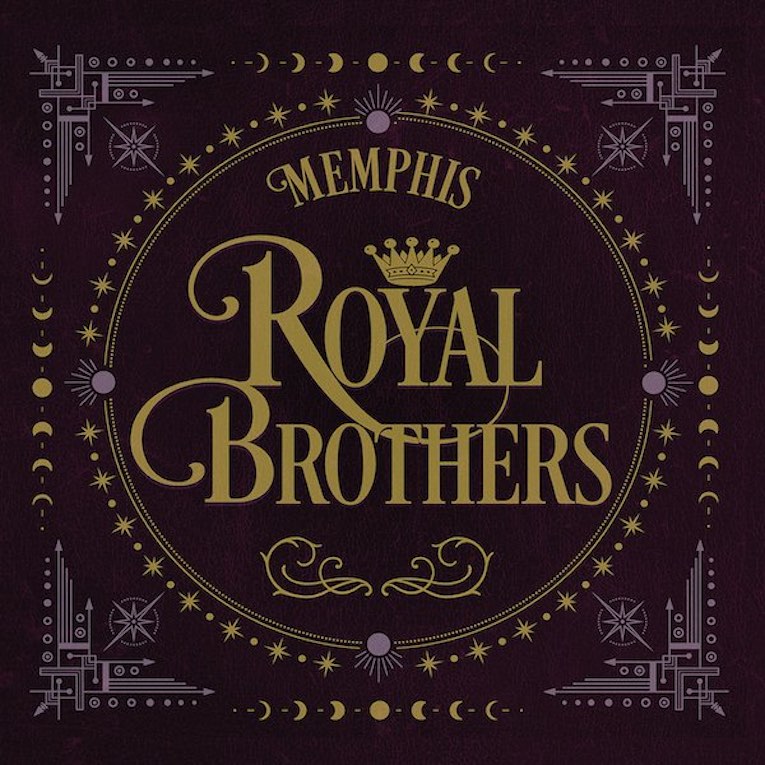
Review: Memphis Royal Brothers (self-titled)
By Hal Horowitz
Anyone who follows the history of American soul and blues is familiar with the role Memphis plays in its past. The home of Stax and Hi labels along with BB and Albert King, helped create a Southern sound that still feels fresh and continues to motivate younger musicians. That’s the concept behind Memphis Royal Brothers, released July 26.
Listening to 70s Memphis music is inspirational, but occasionally it takes something else to peak an audience’s interest in the city’s substantial sonic historical contributions. For brothers Gary and Richard Bolan, 2014s documentary Take Me to the River provided motivation to get their creative juices flowing.
The film, which connected aging, original Memphis-based talents with younger ones, was the spark. Richard reached out to Boo Mitchell, son of storied Stax producer Willie Mitchell, to helm a recording project emulating what that movie accomplished on screen, although with mostly original material.
Boo corralled some older (Stax/Al Green mainstay organist Rev. Charles Hodges, legendary singer Bobby Rush, harmonica ace Charlie Musselwhite—once known by the nickname Memphis Charlie) and younger talents to join on songs, many penned by Gary (who also contributed guitar) under the umbrella of the newly formed The Memphis Royal Brothers Band.
Luther Dickinson, a key figure connecting Memphis’ past with contemporary roots, is also along to further infuse the spirit of Memphis and its music in these eight tracks.
Rush kicks off the proceedings, excitedly blowing blues harp and, well, being Bobby Rush, for a rollicking, horn propelled shuffle “Good God ( I Got the Blues).” At 90 and assisted by a backing chorus of female singers, he exudes more energy than many half his age. We’re off and running on this eight song collection.
The two following tunes feature Musselwhite and Jim Lauderdale on vocals, both finding that greasy combination of blues and soul on “Goin’ South” and “Brand New Heart” respectively. The latter brings a country/Americana slant to a terrific song recalling some of the classic duets which often typified Memphis music (think Otis Redding and Carla Thomas) as Lauderdale and singer Wendy Moten trade verses. Dickinson contributes snappy guitar fills making this one of the disc’s finest moments.
Memphis born and bred, gritty voiced Marcus Scott (Tower of Power) takes the vocal spotlight for the disc’s last half. He brings R&B and a strong gospel attitude to a raw, swamp infested “Hot Night in June.” He’s assisted by Dickenson’s nasty slide runs, horns, and Hodges’ churchy organ along with call and response backing singers. His Mavis Staples-influenced voice pushes the song forward sparring with Luther’s guitar and a backbeat rhythm section straight out of Al Green’s biggest hits.
The social-political lyrics of “What Mothers Do” follows a struggling single mother navigating the difficulties of life (“She gets down on her knees and prays before her savior/asking for the strength to make it through”) as Scott scales emotional heights on this swelling ballad.
The closing cover of “I Fall to Pieces,” best known through Patsy Cline’s version, is the set’s most recognizable entry. Scott brings a sumptuous soul reading to this country standard as strings and supporting singers combine. The seven minute workout ends with Scott testifying as the backing surges to an electrifying climax.
While enticing a few more Memphis-based old-timers to contribute lead vocals (Al Green, Ann Peebles and Don Bryant are still active) would have helped the authenticity factor, The Memphis Royal Brothers nonetheless works its magic. These songs exude the mystique of the city while keeping the performances fresh, vibrant and often entrancing, signaling that the archetypal Memphis groove remains enduring and influential.
Listen “Good God I Got The Blues”

Leave A Comment